BEST DAVID SOUL OBIT
David Soul, Stephen King and the terrifying power of Salem’s LotAlexander Larman
Fri, 5 January 2024
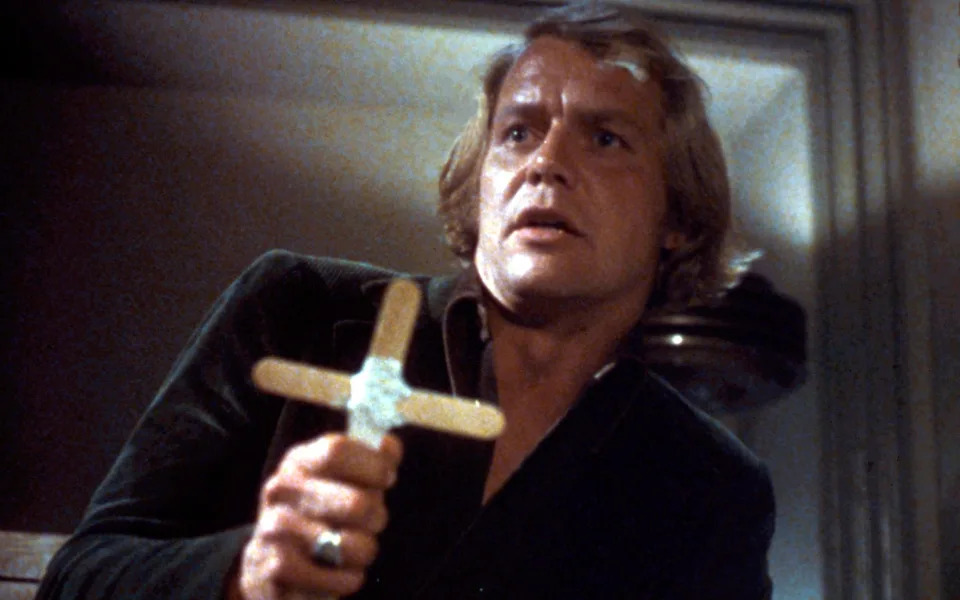
David Soul in Salem's Lot - Alamy
The actor and singer David Soul, who has died at the age of 80, will best be remembered for his iconic performance as the detective Kenneth ‘Hutch’ Hutchinson in the ever-popular TV series Starsky and Hutch. Soul tended to be associated with roles that played on his apparently straight-arrow persona honed in the show, which, as time went by, he tended to play up to for comic effect. The highest-profile parts that he took in later years, unsurprisingly, were self-parodying cameos in everything from the Irvine Welsh adaptation Filth to the likes of Little Britain and Holby City on British television.
Soul’s twinkly, likeable presence made him a natural fit for roles in comedy and light drama, but these unchallenging roles did his acting abilities a disservice. Not only had he managed to subvert his clean-cut looks as early as 1973, in which he played a treacherous police officer in the Dirty Harry picture Magnum Force, but his finest hour as an actor came when he starred in the lead role of the Stephen King adaptation Salem’s Lot in 1979, which was broadcast on CBS as a two-part drama just after Starsky and Hutch came to its conclusion. Had an impressionable teenager watched the miniseries because they were a fan of Soul’s, they would undoubtedly have been scared witless.
Although King was already a bestselling author with a considerable fanbase by November 1979, with several iconic novels including The Shining, Carrie and – naturally – 1975’s Salem’s Lot terrifying millions of readers worldwide, he was not yet a known quantity in TV and film adaptations.
Although Stanley Kubrick was hard at work filming The Shining, which would ultimately, and publicly, disappoint King upon its release in May 1980, the only film of his work that had been released prior to 1979 was Brian de Palma’s Carrie. It had been a considerable box office hit in 1976, as well as winning critical plaudits for the lead performances by Sissy Spacek as the telekinetic teen and Piper Laurie as her religious fanatic mother.
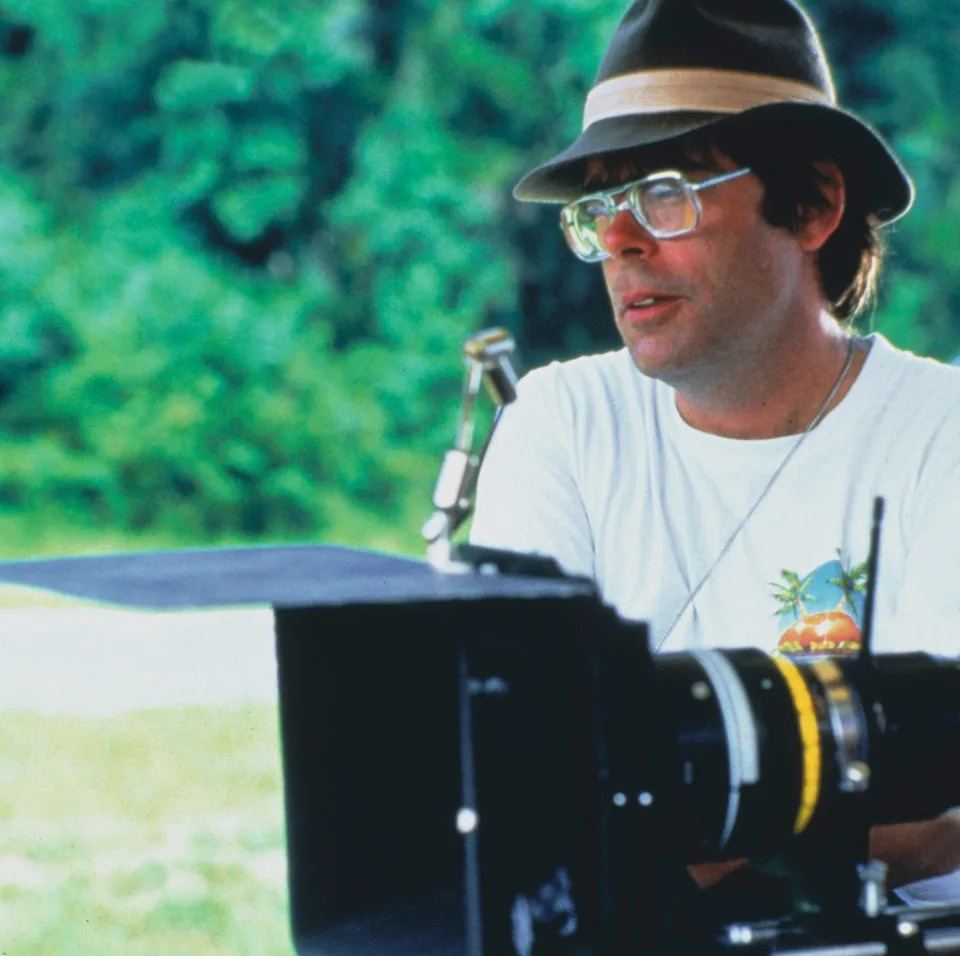
Stephen King in 1970 - Getty
Any adaptation of Salem’s Lot had to live up to this precedent, and Warner Bros Television, who produced the film on a $4 million budget, were careful not to derail the King bandwagon before it had begun. After all, if it was done properly, it could be the beginning of a long and lucrative association.
Yet King was unenthusiastic at first, later saying that “TV is death to horror. When [Salem’s Lot] went to TV, a lot of people moaned and I was one of the moaners.” Initially, attempts to adapt it were dismal; King complained that “Every director in Hollywood who’s ever been involved with horror wanted to do it, but nobody could come up with a script.”
For it to succeed, it would have to take risks, and for them to pay off admirably, and terrifyingly. Its story of a successful writer, Ben Mears – something of a King trope throughout his novels – who returns to his hometown of Salem’s Lot, only to realise that vampirism is rampant in the town, whipped up by the charismatic and villainous Richard Straker, was rich in potential but would need to find the right filmmakers and stars. Otherwise the results could be disappointing, or even ludicrous.
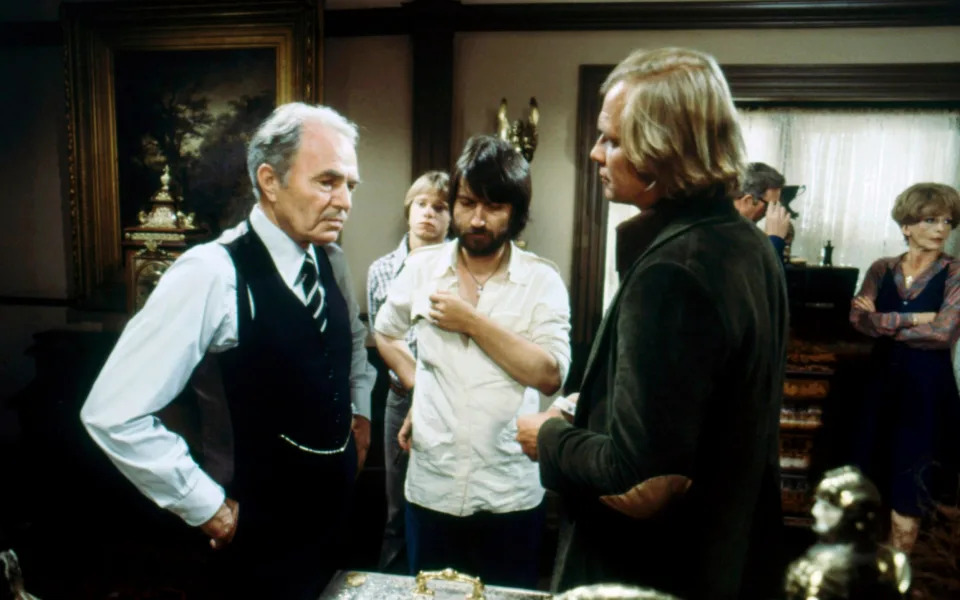
James Mason, Tobe Hooper and David Soul on the set of Salem's Lot - Alamy
The hot horror director of the moment, Tobe Hooper, was hired, fresh from the vast commercial success of The Texas Chainsaw Massacre, and veteran screen villain James Mason would prove to be a seductive and terrifying Straker, He managed to make even the words “Good evening” sound frighteningly ominous. But in the lead role of Mears, Hooper and the screenwriter Paul Monash – a King veteran, having already produced Carrie – needed to find someone who was a familiar face but not over-associated with the horror genre, who could stand toe-to-toe with Mason and also provide a steadying figure that the audience might empathise with amidst the scares. The producer Richard Kobritz met with Soul, in what the actor later described as an appropriately “black, bleak” office, and offered him the role.
Soul was delighted to be acting opposite Mason, which he called “a real kick”, and the production was set in the town of Ferndale in Northern California. The crucial location was the Marsten House of the novel, a hilltop property with a reputation for being haunted which Mears is planning on writing a book about. An elaborate set was constructed outside Ferndale, in the style of a New England house, although as Soul said “they built the exterior, [but] it wasn’t a whole house…it was a façade, and the interior was at the Warner Brothers lot back in California.
“One day, when we were preparing to shoot up at the house, we heard this horrible crash, and there was this car that had run into a telephone pole. When we reached the car, the driver had this look on his face like he’d seen something impossible, and sure enough, this man had lived in Ferndale for 30 years, and had never seen this before.” Soul would not be the only person aghast at what the production would conjure up there.
Several of Soul’s Starsky co-stars, including Juliette Lewis’s veteran character actor father Geoffrey and George Dzunda – later to meet a grisly end in Basic Instinct – were reunited with him in Salem’s Lot, and Soul enjoyed working with them. But he reserved his highest praise for Mason, who he called “absolutely a marvel…a legend, a real legend, someone who came out of the old school, and boy, you could tell the difference. He really knew his craft.” Belying his terrifying persona on-set, Soul praised Mason as “a joy to be with, and a joy to be around.”
The two may have been deadly adversaries on set, but when not filming, they would head to Mason’s trailer and play cards together, which Mason was a keen aficionado of. And the veteran actor was not above punning humour, either; he referred to Soul and his young co-star Lance Kerwin, who played Mark Petrie, a boy whose knowledge of horror film lore helps solve the mystery of Salem’s Lot, as “Lancesky and Hutch.”
One of the film’s most terrifying characters was that of Kurt Barlow, the Nosferatu-esque vampire who Straker has come to Salem’s Lot in order to resurrect. As played by the Austrian character actor Reggie Nalder, Barlow’s character was changed from the conventional-looking villain of the novel to a demonic apparition, on the grounds that, as Kobritz said, “I wanted nothing suave or sexual, because I just didn’t think it’d work; we’ve seen too much of it.” (The fact that he had the velvet-voiced Mason as his lead villain meant that suavity was also assured, too.)
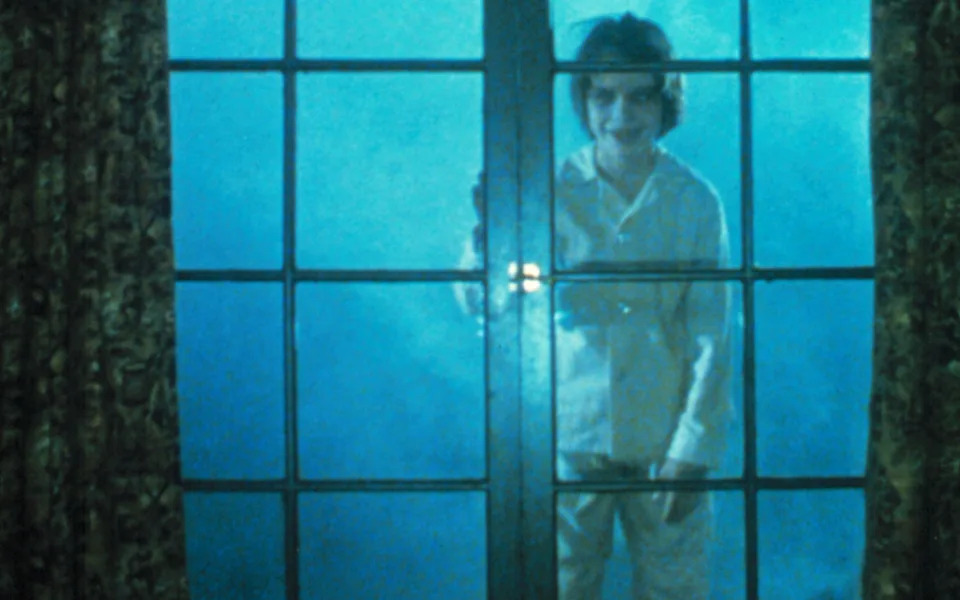
Chilling: a scene from Salem's Lot - Alamy
Soul remarked that “Nadler was born to play this role. He didn’t like it very much, because he had to wear these contact lenses, and his make-up kept falling off, so we had to stop and reset his face, eyes, teeth and eight-inch fingernails.” He quipped that Nalder may have been dissatisfied with the requirements of the role – the actor commented “The makeup and contact lenses were painful but I got used to them. I liked the money best of all” – whereas, in Soul’s knowing words, “I did it for the art.”
The series was packed full of immediately iconic scares. The moment in which the child vampire Ralphie Glick tries to enter his brother Danny’s room from outside, while scratching terrifyingly at the window, remains the most memorable, and has been alluded to in everything from The Simpsons to Eminem’s song Lose Yourself. Guardians of the Galaxy director and DC supremo James Gunn wrote, after Hooper’s death in 2017, that the filmmaker “created the moment that scared me the most as a child – that floating, dead kid tapping on the window.”
Bearing in mind the demands of television, rather than film, it largely eschewed explicit bloodshed in favour of what Hooper called “the overtone of the grave.” He said “A television movie does not have blood or violence. It has atmosphere which creates something you cannot escape – the reminder that our time is limited and all the accoutrements that go with it, such as the visuals.”
Soul enjoyed working with “the very fine director”, who he praised for being “very well prepared”. There were lighter moments, too. The actor celebrated his birthday on set; he later quipped, “they told me I had a good time, but I don’t remember a hell of a lot...I’m told I was enjoying it too.”
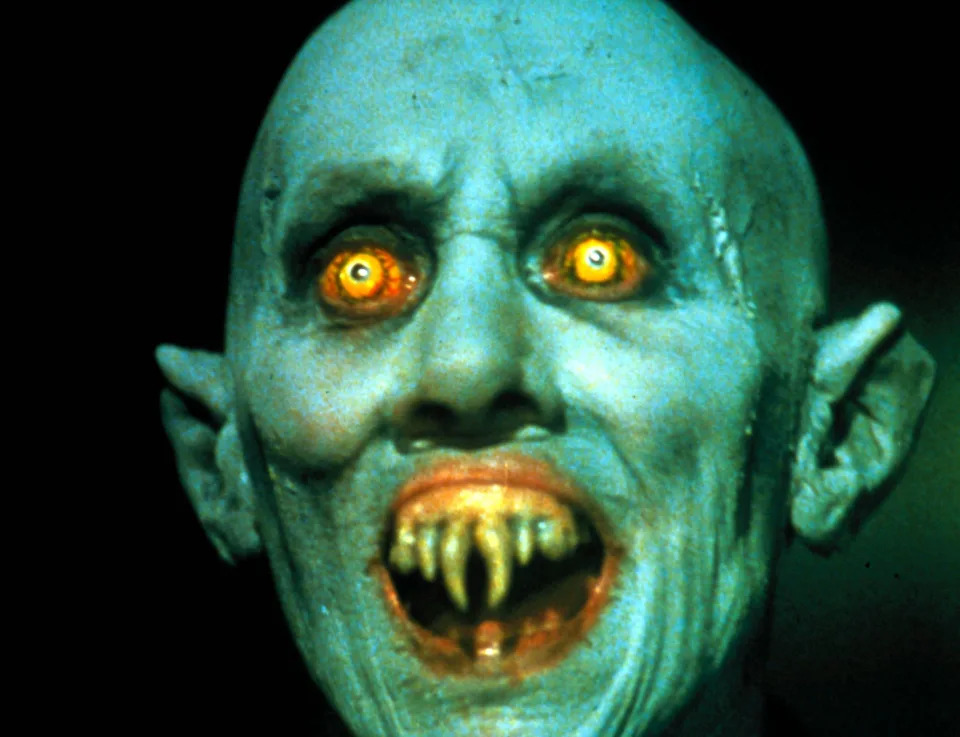
Reggie Nalder as the villain of Salem's Lot - Alamy
Salem’s Lot was enthusiastically received on its first screening, and was later followed by a sequel, Return to Salem’s Lot, and another 2004 miniseries adaptation, this time starring Rob Lowe. It has subsequently proved to be one of the most influential of all modern-day vampire stories, inspiring everything from such Eighties classics as The Lost Boys and Fright Night to Buffy the Vampire Slayer and King regular interpreter Mike Flanagan’s 2021 Netflix miniseries Midnight Mass.
And another film remake is planned, this time directed by It screenwriter Gary Dauberman. Yet it will struggle to surpass the original, which remains one of the most successful King adaptations, with the emphasis on suggestion and subtlety over bloodshed making it all the more terrifying.
As Soul put it: “Salem’s Lot is responsible for a whole new genre, particularly in terms of television. I think the film we did is the legendary film, the real thing, and everything else tried to copy elements of what we accomplished.” The obituaries will salute this versatile actor for being forever Hutch, but Salem’s Lot is surely his truest – and longer-lasting – legacy.
STANDARD OBIT
Starsky & Hutch actor David Soul’s 50 years on screen and stage
Jordan Reynolds, PA
Fri, 5 January 2024
Actor David Soul was best known for his role as Detective Kenneth “Hutch” Hutchinson in the classic crime-solving television series Starsky & Hutch.
US-born Soul, who starred opposite Paul Michael Glaser, who played Detective Dave Starsky, in the 1970s US TV series, was also known for his roles in Here Come The Brides, Magnum Force and The Yellow Rose.
With a career spanning 50 years, Soul also made a name for himself as a director, producer, singer/songwriter and social activist.
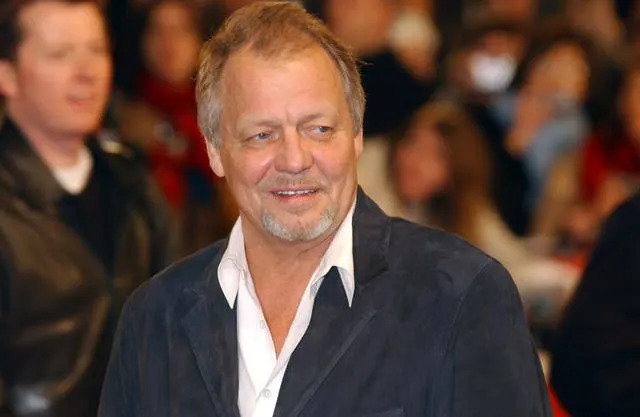
David Soul (Yui Mok/PA)
David Solberg (Soul) was born in Chicago, Illinois, on August 28 1943, then spent the next 12 years between South Dakota and post-Second World War Berlin.
His father Dr Richard Solberg, a professor of history and political science and an ordained minister, moved his family to Berlin where he served as a religious affairs adviser to the US High Commission.
Soul was affected by his experiences in Berlin and initially considered following in his father’s footsteps, later becoming involved with the South Dakota Young Democrats.
He was also an avid sportsman and was offered a professional baseball contract with the Chicago White Sox after high school in 1961.
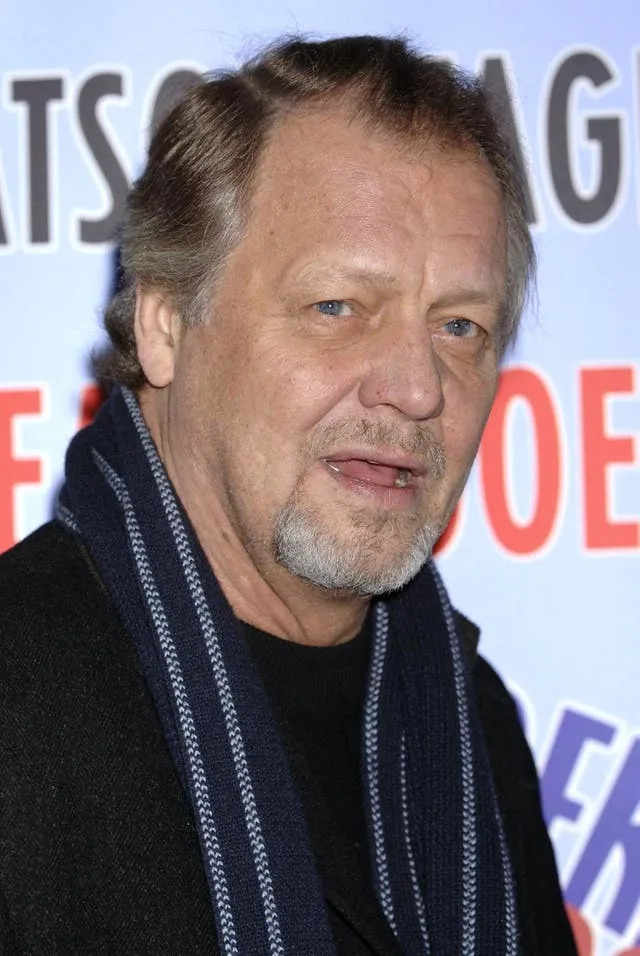
David Soul arriving for the Theatregoers’ Choice Awards, held at Planet Hollywood in central London, in November 2005 (Yui Mok/PA)
But instead, during his second year of college, he left to go to Mexico City with his father who went to be a professor at a graduate school for young diplomats.
Here he was introduced to the indigenous songs of Mexico and when he returned to the US, he secured a job singing folk music at a coffee house at the University of Minnesota.
It was in Minneapolis where Soul got his first taste of theatre.
He was 21, married and with a child when he took over his friend’s role as the “Pugnacious Collier” in the Firehouse Theatre’s production of John Arden’s Sergeant Musgrave’s Dance.
Then, separated from his wife, Soul sent an audition tape and a photo, calling himself “The Covered Man” – while wearing a mask and shortening his name to Soul – to the William Morris Agency in New York, which signed him.
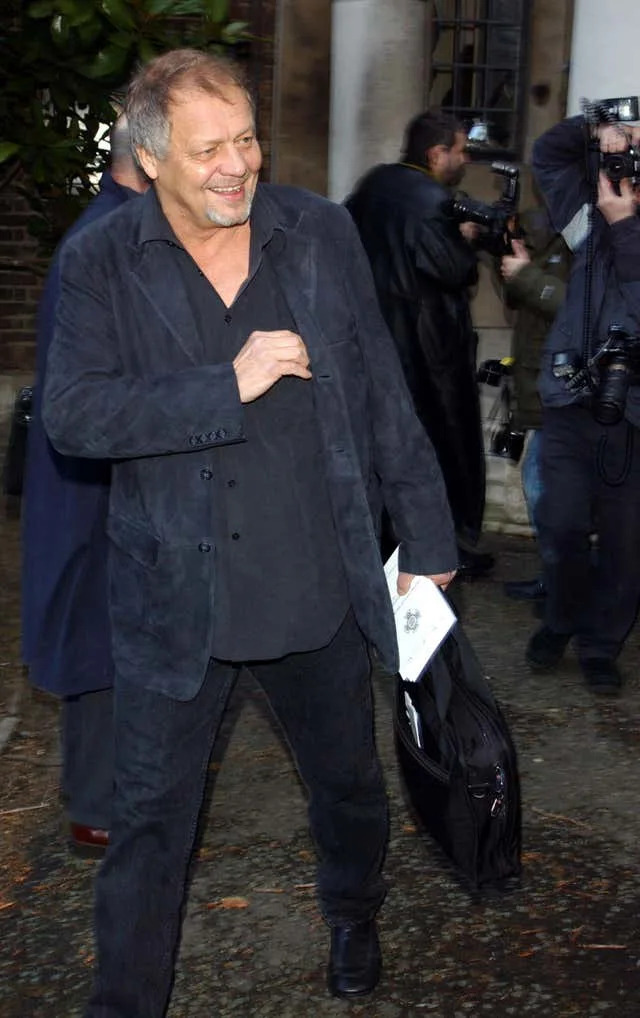
Actor David Soul in 2004 (Ian West/PA)
Soul travelled to New York in 1965 and appeared on The Merv Griffin Show for multiple singing appearances, as well as with MGM Records.
His first release was The Covered Man. Soul wore a mask for four months and would not show his face, saying he wanted to be “known for his music”.
Studying in New York with Uta Haugen and Irene Daily, Soul was given his first television role in 1960s dolphin series Flipper.
He was spotted on The Merv Griffin Show by a talent executive at Columbia/Screen Gems, then signed a contract with Screen Gems which saw him move to Los Angeles.
Soul acted in Star Trek, Here Come The Brides, Perry Mason and Johnny Got His Gun, throughout the 1960s and 1970s.
He got his break as officer John Davis in Clint Eastwood’s police yarn Magnum Force, about Inspector Harold Callahan, which led to a part in Starsky & Hutch from 1974 to 1979.
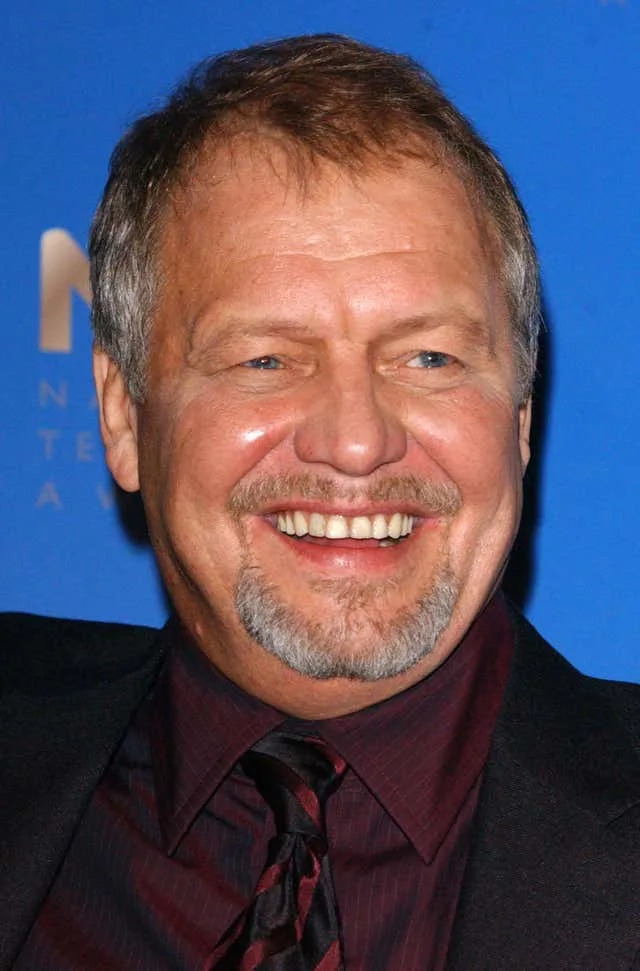
David Soul arrives for the annual National Television Awards at the Royal Albert Hall in central London in 2004 (Ian West/PA)
In the years following, Soul directed different television series, produced and directed theatre shows and produced and directed three documentaries.
He also funded, produced and co-directed a documentary on the shutdown of Pittsburgh’s steel industry between 1982 and 1985.
At the height of his fame he released the UK chart-toppers Don’t Give Up On Us and Silver Lady, and the hits Going In With My Eyes Open and Let’s Have A Quiet Night In.
Soul toured across large parts of the world with his band and performed as part of the late Queen’s silver jubilee in 1977.
But in the 1980s Soul hit the headlines when he was arrested for attacking his then-wife, and he went on to be part of a BBC programme in the early 2000s which aimed to tackle domestic violence.
He also went on to appear in TV series Salem’s Lot, an adaptation of Stephen King’s novel of the same name, as Ben Mears, who returns to his home town, which has been taken over by vampires.
Soul was also in Miami Vice, Harry’s Hong Kong, Homeward Bound and a TV series remake of Casablanca.
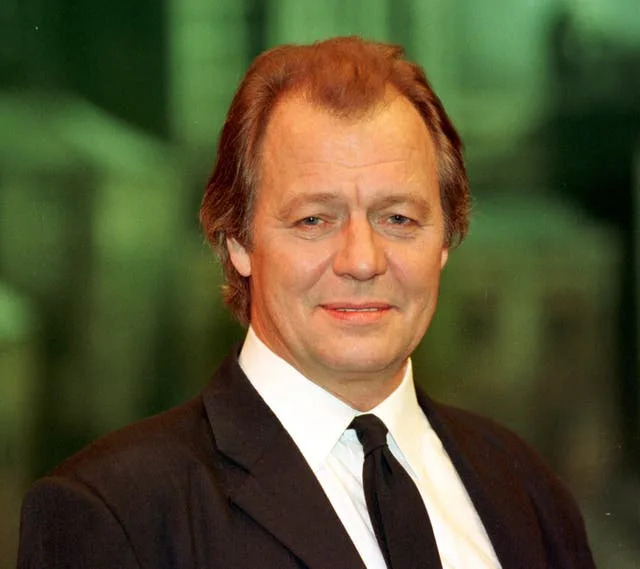
David Soul on stage at London’s Phoenix Theatre (Rebecca Naden/PA)
In the last 30 years of his life, Soul moved from Los Angeles to New Zealand, then to Australia, where he performed in Willy Russell’s Blood Brothers, Paris and finally London where he worked in theatre, television and film.
In the 1990s, he made his debut on the West End stage in the award-winning play Blood Brothers while he was living in the UK.
Some of his many television and film credits in the UK include appearances on Little Britain, Top Gear, Holby City, Agatha Christie’s Poirot: Death On The Nile, as well as films Tabloid and Puritan.
He and Glaser reprised their roles in the 2004 remake Starsky & Hutch, starring Ben Stiller as Starsky and Owen Wilson as Hutch.
Soul, who was a dual US and UK citizen, was married five times, including to actresses Mirriam Solberg, Karen Carlson, Patti Carnel Sherman and Julia Nickson, and had six children and seven grandchildren.
Soul died on Thursday at the age of 80 surrounded by his family, his wife Helen Snell said in a statement.
No comments:
Post a Comment